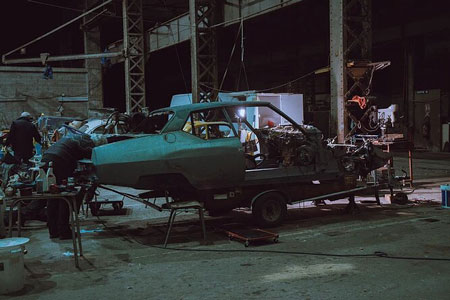Posted on 2/17/2020

This is a two-post series with part one being published on February 14, 2020. If you haven't already read that one, you might want to catch up first. So here we are again, talking about whether you should fix the beater. There's risk involved no matter what you do. You might fix it and something else breaks next week. You might buy a new car and that one breaks. (Side note: if you fix it and it turns out that wasn't the problem, we need to talk with your mechanic and make sure that was a one-time mistake and not repeat carelessness). Here's the best question to ask yourself: “Do I love this car?” If the answer is yes, then you should seriously consider fixing it. If you don't love your car, you need to find a car you love. If this repair won't put you into debt, you should fix it so that you're not desperate to find a new car. If you don't fix it, just remember that Ubers for a week are cheaper than years of loan interest and vehicle maintenance. Most people say things to m ... read more
Posted on 2/14/2020
A question I hear from customers often is, “Is it even worth it to fix it?” My answer is always the same: “It depends.” This answer is even accurate for customer who need major repairs like an engine or transmission. This answer is the SAME even if the customer needs an engine for a 1980s Honda…it depends. The real question you need to ask yourself is, “What is my goal with this vehicle?” Most people claim that they just want something to get them from “point A to point B,” but the facts show us that car buying is largely an emotional decision. But this post is about being in the moment where you have to decide what to do with your car, not deciding which car to buy. Keep in mind some of the following costs associated with replacing your car: sales tax, dealer fees, registration fees, loan interest, state inspections, new insurance premiums (could be higher or lower), new phone mount or other personal accessories, time off work and ... read more
Posted on 1/15/2020
This post is a 3-part series on automotive maintenance. We shared an article from Car Bibles this past month about automotive maintenance and 20 essential components for it. That article can be found here. Let's go through a couple of the points that Car Bibles makes: 1. "Inspect your vehicle on a regular basis" I can't think of a more important piece of advice. The newer the car is, the more sensors and gizmos it has to keep track of important wear items. But nothing is a substitute for a pair of human eyes. You should have your car inspected often enough to be on first name basis with the mechanics. That doesn't mean you have to spend money every time, but you need to know how things are going with your car. 2. "Learn the meaning of different warning light indicators" There's danger with this piece of advice. You should understand what sy ... read more
Posted on 1/15/2020
This post is a 3-part series on automotive maintenance. We shared an article from Car Bibles this past month about automotive maintenance and 20 essential components for it. That article can be found here. Continuing on: 5. "Check fluid levels" This needs to be done monthly if your car has more than 60K miles on it. As many as you can check: engine oil, transmission fluid, coolant/antifreeze, brake fluid, power steering fluid, clutch fluid, and washer fluid. Be safe and don't check the coolant after the engine has been running. Be careful not to contaminate the fluids when checking them. Even if your car is in good condition, don't expect warning bells when a leak starts or the engine starts to consume a little oil. It's actually normal for many engines to consume oil from the factory. 6. "Replace spark plugs" You should know how often the m ... read more
Posted on 1/15/2020
This post is a 3-part series on automotive maintenance. We shared an article from Car Bibles this past month about automotive maintenance and 20 essential components for it. That article can be found here. We see daily examples of good maintenance and occasionally some vehicles that lack the regular maintenance needed to stay in good shape. There is one universal truth that I believe in when it comes to auto repair: you can't decide to be economical with a repair if you aren't regularly proactive with your maintenance. Let me give you an example. If you do a lot of city driving, your brakes will wear out faster than someone who does mainly highway driving. Being proactive with your brakes means having a technician check them during every oil change. You should plan to replace them every 30-60K miles. A good time to replace them is when there ... read more